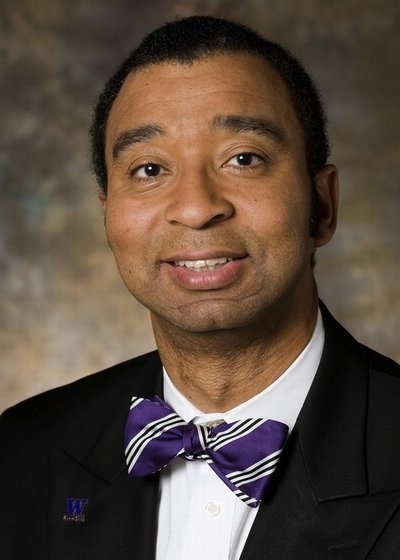October 21, 2010
Smaller Faculty Senate begins new year with communication as key
The Faculty Senate begins a new year at 2:30 p.m. Oct. 28, in a new home and with a new, smaller group of senators.
Last year the Faculty approved legislation providing that each elected senator represent 40 faculty rather than 15 under the previous system. The changes bring the senate from 267 members to 114. Given the smaller size, the meetings have been moved from 301 Gowen to 260 Savery.
New Senate Chair J.W. Harrington hopes the new size and space will foster more discussion among the senators. To encourage that, he’s making some changes in the format.
“The senate is a legislative body and so we actually operate on Roberts Rules of Order — you have to have a motion on the floor in order to have a discussion, etc.,” Harrington said. “And half the senate meetings have been taken up with reports — from the president, from senate committees, from various invited guests. Well, you get four of those at 20 minutes apiece and you’ve taken the bulk of the meeting.
“So I’m asking that most reports come to the senators in written form submitted with the agenda so that senators can read them and come with questions. Then we’ll have Q&A. The idea will be, this person is available for people to ask questions, so it’s more driven by the group. We’ll also have a part of the agenda called “good of the order,” in which we have time to have a discussion without a motion on the floor.
The change in the process is part of Harrington’s major initiative for the year, which is communication rather than legislation. It’s not that the senate will have no business before it, he said, but rather that the business before it is largely the same as that before the University as a whole — the challenge of the shrinking budget and the search for a new president. Given that, much of the action of the senate this year will come out of the Senate Committee on Planning and Budgeting, chaired by last year’s senate chair, Bruce Balick.
“The Senate Committee on Planning and Budgeting is the one place in the University where faculty, senior administrators, student leadership and representatives from the board of deans get together in the same room once a week and deal with budget and planning issues,” Harrington said. “It’s totally advisory, but on a week to week basis, what we’re working with is trying to figure out how to reconfigure the University’s budget on the margins, given the change in funding.”
As for the presidential search, Kellye Testy, dean of the law school and chair of the presidential search committee, is scheduled to report to the Faculty Senate at the Oct. 28 meeting.
Faculty councils, which have also been reduced, have their own projects to pursue. Last year the councils on educational outreach, educational technology and instructional quality were combined into a single council, the Council on Teaching and Learning, and the council on university relations was replaced by a Universitywide Special Committee on Honorary Degrees.
This year’s Faculty Council on Faculty Affairs will be taking a look at the RCEP (Reorganization, Consolidation and Elimination of Programs) process in anticipation of the process possibly being used to help address the budget cuts.
“FCFA is examining the current RCEP process for its clarity, possible gaps, and how to implement the process in the most useful way.,” Harrington said.
Once an RCEP process is set in motion, the Faculty Senate gets involved at several points, including appointing an external faculty committee to consider the recommendations of the dean or chancellor involved, receiving reports from that committee and from the dean or chancellor and then appointing a review committee, which delivers a recommendation to the president and the provost.
Harrington believes one of his main challenges — and that of anyone at the University today — is getting people’s attention. He’s decided to attack that problem with a blog, https://depts.washington.edu/senatblg/. “The way we’ve designed the blog, any senator can post anything. They’ve got open access to it,” Harrington said. “And, anybody with a UWNetID can log in and make comments on those posts. We’ve restricted it to those with NetIDs because we want to keep this an internal conversation.”
The blog was set up with the help of Alan Borning, professor of computer science; and Lance Bennett, professor of political science and communication, who have received a grant to increase civic engagement using internet tools. Data from the blog will be used as part of a research study designed to learn more about what makes for more effective communication on such sites.
Harrington hopes that faculty will tune into the blog as one way of learning about what the Faculty Senate is doing and communicating their opinions. With the smaller senate, he notes, senators must make more of an effort to reach their constituents, and constituents should feel free to make their thoughts known.
Harrington has even made a two-minute video, which is posted on the Faculty Senate homepage, http://www.washington.edu/faculty/facsen/ as a way of reaching out to faculty. A veteran of the senate, he served a year as deputy legislative representative and two as lead representative before becoming vice chair last year.
“I actually love this, because it gives me a chance to work with the University as a whole,” he said. “Colleagues come up to me and say, ‘I can’t believe you’re doing this when the budget is going to be cut yet again.’ Well, I mean, what an amazing time, when each of us can have little bits of influence on how the University looks in 15 years.”

